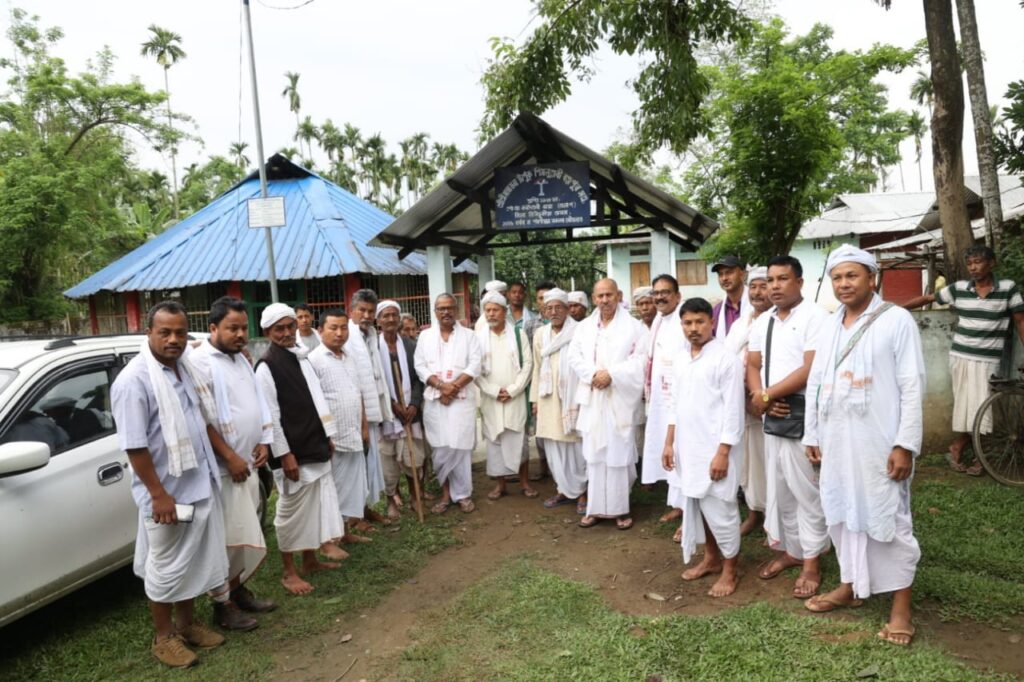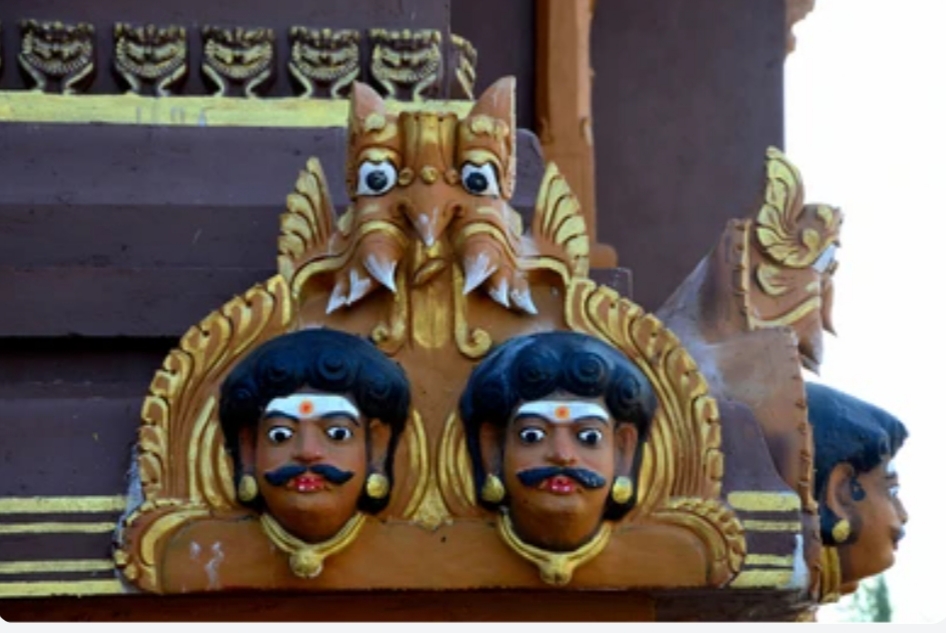By Manoj Kumar Ojha
Guwahati: The Assam Satra Commission is conducting a field study of the Satras across the state, informed the chairman of the commission.
One of the most significant distinguished and unrestrained characters of the neo Vaishnavite movement of Assam was its satra institution.
It is a medieval socio religious institution ,a product of Neo-Vaishnavite led by Sankardeva and his disciple Madhavdeva in the 15th-16th century. The satra is a unique institution not of Assam alone or that of India, it is a unique institution of the whole world in the sense of it being a multidimensional religio-cultural organization and its distinctive characteristics.
Those satras are suffering various issues these days– Land issue , boundary issue , road development and even survival threats.
In connection with all that a delegation of the Assam Satra Land issue Monitoring and inspection commission visited Sri Sri Mayamora Rupahi Satra at Mamarani village under Tinsukia Revenue Circle, Sri Sri Tipuk Simaluguri Bajrapur Satra at Kordoiguri and Dirak Mayamora Satra at Dirak under Doomdooma Revenue Circle on Thursday and took stock of various problems of the Satras have been facing for a long time .They took a detailed look at it .
In the history of Assam Vaishnavism, the Mayamara satra has occupied an important place for its missionary activities and for raising the first popular rebellion against the Ahom government in 1769. The Mayamara satra was founded by Aniruddhadeva, the nephew of Sankardeva and a disciple of Gopaldeva(1476-1541), founder of Kala Samhati order of Assam Vaishnavism. Aniruddhadeva started proselytizing activities from the year of 1601 by establishing a satra at Vishnu Balikunchi, present North Lakhimpur district. The democratic outlook of the satra and spirit of humanism appealed the tribesman and they immediately accepted him as their guru. The satra gained great popularity and hence enviable prominence that one time almost half of the population of the state became it disciples.
The delegation which was led by the chairman of the commission and the MLA of Amguri LAC Pradeep Hazarika, also held discussions with the Satradhikars and Bhakats of the Satras and mentioned the steps taken by the present government to solve the land issue of the Satras .
In the present work an attempt has been made to study the impact of the Mayamara Vaishnavism on society in 18th century Assam through the study of the Mayamara satra. It is significant to note that the Mayamara satras which acted as a tool of social formation among the various tribes and castes of Assam was mainly concentrated the Upper Assam that cradle of Ahom State.

Meanwhile, the chairman was accompanied by commission member and the MLA of Khumati LAC Mrinal Saikia and the adviser of the commission Madhav Prasad Sharma.
During the visit ,the commission also promised to take necessary steps to carry out proper preservation of the ancient treasures collected in the satras .
The commission later held a meeting with the Satradhikars of Tinsukia district and the presidents and the secretaries of the Satra Management Committees at the conference hall of the Deputy commissioner’s office, Tinsukia.

Tinsukia Deputy Comissionere Swapneel Paul welcomed the members of the commission at the beginning. The meeting was attended by the Satradhikars and presidents and secretaries of of the Satra Management Committees of about 17 Satras in Tinsukia district.
The Commission also took detailed note of the difficulties faced in the management of the Satras .Pradeep Hazarika said the role of Satras in uniting the society is very important and detailed information on the problems faced by the Satras will be prepared and submitted to the government in the form of a report in coming days .
“The Satras can even today spiritually play a very creative role to make the human race more humanly and better in all ways,” said Ram Krishna Das.

-min.png)